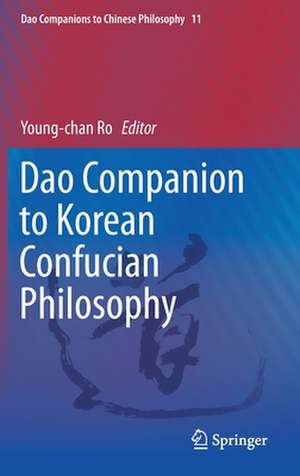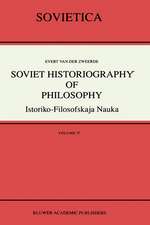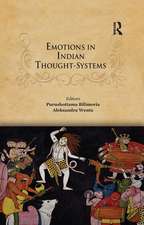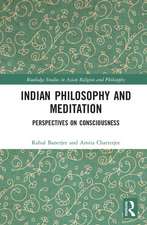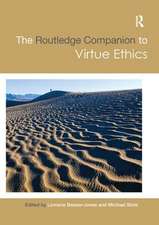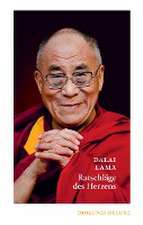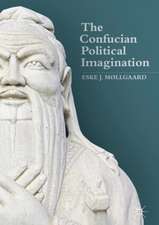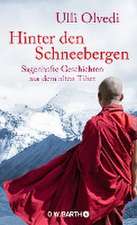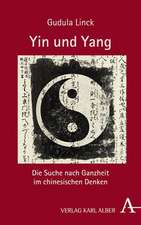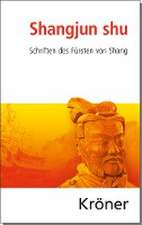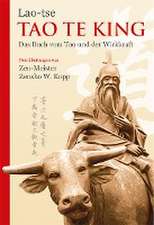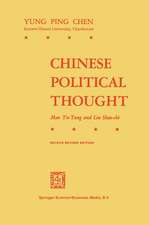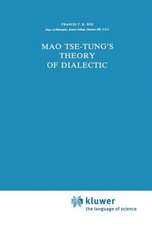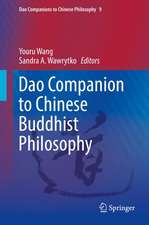Dao Companion to Korean Confucian Philosophy: Dao Companions to Chinese Philosophy, cartea 11
Editat de Young-chan Roen Limba Engleză Hardback – 2 sep 2019
Din seria Dao Companions to Chinese Philosophy
- 18%
 Preț: 1827.00 lei
Preț: 1827.00 lei - 18%
 Preț: 954.93 lei
Preț: 954.93 lei - 18%
 Preț: 1127.15 lei
Preț: 1127.15 lei - 18%
 Preț: 1033.23 lei
Preț: 1033.23 lei - 18%
 Preț: 956.03 lei
Preț: 956.03 lei - 18%
 Preț: 1131.40 lei
Preț: 1131.40 lei - 18%
 Preț: 969.93 lei
Preț: 969.93 lei - 24%
 Preț: 688.85 lei
Preț: 688.85 lei - 18%
 Preț: 807.96 lei
Preț: 807.96 lei - 18%
 Preț: 1242.35 lei
Preț: 1242.35 lei - 24%
 Preț: 784.84 lei
Preț: 784.84 lei - 18%
 Preț: 1059.70 lei
Preț: 1059.70 lei - 18%
 Preț: 949.06 lei
Preț: 949.06 lei - 15%
 Preț: 653.98 lei
Preț: 653.98 lei - 24%
 Preț: 1725.19 lei
Preț: 1725.19 lei - 18%
 Preț: 1128.08 lei
Preț: 1128.08 lei - 18%
 Preț: 1408.71 lei
Preț: 1408.71 lei - 18%
 Preț: 1121.62 lei
Preț: 1121.62 lei
Preț: 1011.77 lei
Preț vechi: 1233.87 lei
-18% Nou
Puncte Express: 1518
Preț estimativ în valută:
193.59€ • 202.15$ • 159.87£
193.59€ • 202.15$ • 159.87£
Carte tipărită la comandă
Livrare economică 15-29 aprilie
Preluare comenzi: 021 569.72.76
Specificații
ISBN-13: 9789048129324
ISBN-10: 904812932X
Pagini: 500
Ilustrații: XII, 422 p. 2 illus.
Dimensiuni: 155 x 235 mm
Greutate: 0.79 kg
Ediția:1st ed. 2019
Editura: SPRINGER NETHERLANDS
Colecția Springer
Seria Dao Companions to Chinese Philosophy
Locul publicării:Dordrecht, Netherlands
ISBN-10: 904812932X
Pagini: 500
Ilustrații: XII, 422 p. 2 illus.
Dimensiuni: 155 x 235 mm
Greutate: 0.79 kg
Ediția:1st ed. 2019
Editura: SPRINGER NETHERLANDS
Colecția Springer
Seria Dao Companions to Chinese Philosophy
Locul publicării:Dordrecht, Netherlands
Public țintă
ResearchCuprins
Introduction.- 1. A Historical Overview of Korean Confucianism; Don Baker.- 2. Confucian Philosophy as the Ideological Foundation of the Choson Dynasty: Chong Tojon; Chai-sik Chung.- 3. Intellectual Philosophical Formation of the Choson Dynasty: Kwon Kun, Haryun, Yu Sungjo; Hongkyung Kim.- 4. Philosophical Movement of Sarimp’a or the School of Private Studies: Kil Jae, Cho Kwangjo, Kim Sisup; Oaksook Kim.- 5. The Rise of Qi monism and So Kyongdok; Wonsuk Chang.- 6. Yi T’oegye: Korean Achievement of Neo-Confucian Philosophy; Mike Kalton.- 7. Yi Yulgok: Korean Approach to Neo-Confucian Philosophical Issues; Young-chan Ro.- 8. The Korean Development of the Neo Confucian "Four-Seven Debate"; Ed Chung.- 9. Critical Appraisal of T’oegye and Yulgok: Korean Contribution to the Neo-Confucian Philosophical discourse; Sa-Soon Youn.- 10. The Horak Debate concerning Human Nature of the Nature of all Other Beings: Yi Kan, Han Wonjin; Ae Hee Yi.- 11. Chung Tasan: Re-formation of Korean Neo-Confucianism; Mark Setton.- 12. Sirhak or the Practical Learning School in Korea: Yi Sukwang, Yu Songwon, Yi Ik Pak Chiwon, Pak Chaega; Hyung-jo Han.- 13. The Late Choson Confucianism and Western Learning. and Catholicism: Interaction and Conflict; Jang-tae Keum.- 14. The Yangming School in Korea: Ch’oe Myonggil, Chong Chaedu, Pak Unsik, Chong Inbo; Injae Chung.- 15. Confucian Orthodoxy and Revival of the Li School: Yi Hangno; Chai-sik Chung.- 16. Song Siyol and Revival of the Qi School; Shin-Hwan Kwak.- 17. Confucianism and Social Values in Modern Korea; Seung Hwan Lee.- 18. Women and Confucianism in Korea; Eun Suun Lee.- 19. Confucianism and Shamanism in Korea; Boudewijn C.A.Walraven.- Index.
Recenzii
“The collection of eighteen essays in this book offers a comprehensive and current introduction to various aspects of Korean Confucianism, making it the most extensive resource available in English-speaking academia. … I highly recommend this book to anyone interested in the Korean Confucian tradition. Readers will likely find the essays informative and thought-provoking.” (Youngsun Back, Dao, Vol. 22 (2), 2023)
Notă biografică
Professor Ro received his BA from Yonsei University (Korea), an MTh from Union Theological Seminary, Richmond, VA, and his PhD from the University of California, Santa Barbara. Dr. Ro has written The Korean Neo-Confucianism of Yi Yulgok, and co-authored The Four-Seven Debate: An Annotated Translation of the Most Famous Controversy in Korean Neo-Confucian Thought. He is working on a new translation of Dao De Jing.
He also published several book chapters in Neo-Confucianism including Ecological Implications of Yi Yulgok's Cosmology Confucianism and Ecology, and “Morality, Spirituality, and Spontaneity in Korean Neo-Confucianism”, Confucian Spirituality, Volume Two. He has published many articles in Korean studies, Confucian studies, and comparative religion. He is a recipient of the 2004 Yulgok Scholarly Award, the most prestigious academic award in Confucian studies in Korea.
He also published several book chapters in Neo-Confucianism including Ecological Implications of Yi Yulgok's Cosmology Confucianism and Ecology, and “Morality, Spirituality, and Spontaneity in Korean Neo-Confucianism”, Confucian Spirituality, Volume Two. He has published many articles in Korean studies, Confucian studies, and comparative religion. He is a recipient of the 2004 Yulgok Scholarly Award, the most prestigious academic award in Confucian studies in Korea.
Textul de pe ultima copertă
This volume is the first comprehensive and in-depth discussion written in English of the Confucian tradition in the context of the intellectual history of Korea. It deals with the historical, social, political, philosophical and spiritual dimensions of Korean Confucianism, arguably the most influential intellectual tradition, ethical and religious practice, and political-ideological system in Korea. This volume analyzes the unique aspects of the Korean development of the Confucian tradition by examining the role of Confucianism as the ruling ideology of the Choson Dynasty (1302-1910). It investigates Confucianism’s social and cultural construction, and intellectual foundation in highlighting the Korean achievement of the Neo-Confucian discussion on "human nature and its principle" in light of the Chinese Neo-Confucian development. The volume also surveys the most influential Korean Confucian scholars discussing their philosophical significance in relation to one of the most fundamentalNeo-Confucian discourses, namely the li (principle) and qi (material force) debates, to elucidate how metaphysical theories shaped the socio-political factions of the Choson Dynasty. Furthermore, issues concerning the relationship between Confucianism and Buddhism and other native traditional belief systems are also included in this volume. The volume explores the Confucian confrontation with modernity, encounter with the "Western Learning" including Western science and Catholicism, and the Confucian struggle with modernity in dealing with issues such as democracy, human rights, and gender in modern Korea. Individual contributors of this volume are either well established senior scholars or promising young scholars in the field.
Caracteristici
Deals with the historical, social, political, philosophical and spiritual dimensions of Korean Confucianism, arguably the most influential intellectual tradition, ethical and religious practice, and political-ideological system in Korea Surveys the most influential Korean Confucian scholars discussing their philosophical significance in relation to one of the most fundamental Neo-Confucian discourses, namely the "li" (principle) and "qi" (material force) debates
